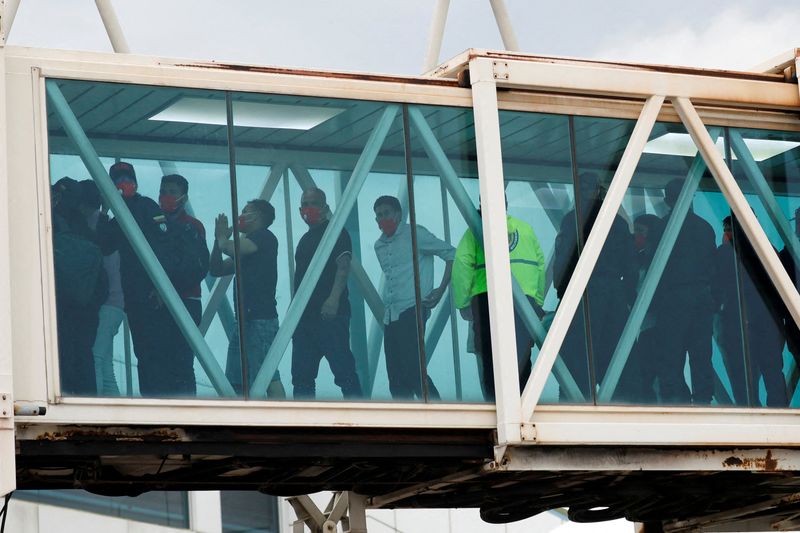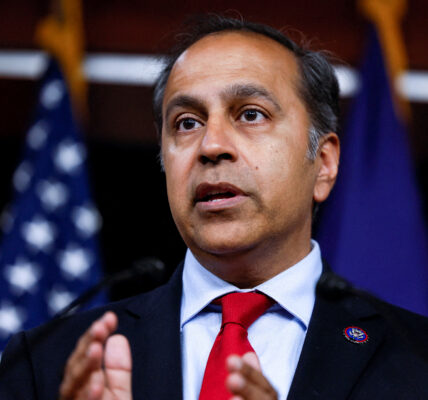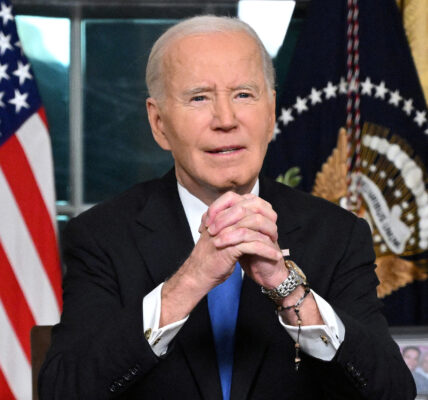Officials and residents in countries whose citizens will soon be banned from visiting the United States expressed dismay and disbelief on Thursday at President Donald Trump’s new sweeping travel ban as his administration intensifies its immigration crackdown.
Trump signed a proclamation on Wednesday barring citizens of 12 countries from entering the U.S. starting on Monday, asserting that the restrictions were necessary to protect against “foreign terrorists.”
The order was reminiscent of a similar move Trump implemented during his first term in office from 2017 to 2021, when he barred travelers from seven Muslim-majority nations.
That directive faced court challenges and went through several iterations before the U.S. Supreme Court upheld the ban in 2018. Former President Joe Biden, a Democrat who succeeded Trump, repealed that ban in 2021, calling it “a stain on our national conscience.”
But the new ban is much more expansive and covers Afghanistan, Myanmar, Chad, Congo, Equatorial Guinea, Eritrea, Haiti, Iran, Libya, Somalia, Sudan and Yemen.
Citizens of seven other countries – Burundi, Cuba, Laos, Sierra Leone, Togo, Turkmenistan and Venezuela – will be partially restricted.
A senior diplomat with the Sudanese Foreign Ministry, who asked not to be named, said Trump’s justification did not stand up to scrutiny.
“Sudanese people have never been known to pose a terrorist threat anywhere in the world,” the official said.
Chad President Mahamat Idriss Deby Itno said he had instructed his government to stop granting visas to U.S. citizens in response to Trump’s action.
“Chad has neither planes to offer nor billions of dollars to give, but Chad has its dignity and its pride,” he said in a Facebook post, referring to countries such as Qatar, which gifted the U.S. a luxury airplane for Trump’s use and promised to invest billions of dollars in the U.S.
Afghans who worked for the U.S. or U.S.-funded projects and were hoping to resettle in the U.S. expressed fear that the travel ban would force them to return to their country, where they could face reprisal from the Taliban.
Fatima, a 57-year-old Afghan women’s rights defender waiting in Pakistan for her U.S. visa to be processed, had her dreams shattered overnight after Trump’s order.
“Unfortunately, the decisions made by President Trump turned all the hopes and beliefs of us into ashes,” she told Reuters, asking that only her first name be published for security reasons.
BAN TO TAKE EFFECT MONDAY
Trump said the countries subject to the most severe restrictions were determined to harbor a “large-scale presence of terrorists,” fail to cooperate on visa security, have an inability to verify travelers’ identities, as well as inadequate record-keeping of criminal histories and high rates of visa overstays in the United States.
He cited Sunday’s incident in Boulder, Colorado, in which an Egyptian national tossed a gasoline bomb into a crowd of pro-Israel demonstrators as an example of why the new curbs are needed. But Egypt was not part of the travel ban.
“Because Egypt has been a country that we deal with very closely. They have things under control,” Trump told reporters in the Oval Office on Thursday.
When asked why he chose this moment to unveil the ban, he said: “It can’t come soon enough.”
The visa ban takes effect on June 9 at 12:01 a.m. EDT (0401 GMT). Visas issued before that date will not be revoked, the order said.
In total, just under 162,000 immigrant visas and temporary work, study, and travel visas were issued in fiscal year 2023 to nationals of the affected countries in the now banned visa categories, according to the Migration Policy Institute.
The ban is likely to face legal challenges. But Stephen Yale-Loehr, a retired professor of immigration law at Cornell Law School, said he expected those lawsuits to face an uphill climb, because the latest ban contains various exemptions and cited specific security concerns with each country.
The ban includes exemptions, such as for dual nationals, permanent residents, immigrant visas for immediate family members of U.S. citizens and athletes traveling for major sporting events like the World Cup.
“Trump has learned from the mistakes of earlier travel bans,” he said.
Some foreign officials said they were prepared to work with the U.S. to address Trump’s security concerns.
“Somalia values its longstanding relationship with the United States and stands ready to engage in dialogue to address the concerns raised,” Dahir Hassan Abdi, the Somali ambassador to the United States, said in a statement.
Please like, comment, and share this article if you found it helpful and
informative.
For more news check out Big Town Bulletin News
For more from Big Town Bulletin check out Big Town Bulletin




